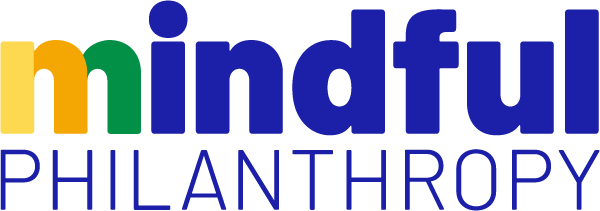How to Support an Effective Mental Health Curriculum in Schools
Back to school season is here! As funders navigate a complex landscape of mental health in schools, supporting mental health related curriculum is often one of the first opportunities funders consider. As a result, we at Mindful Philanthropy often get asked how to tell if a particular curriculum is effective for addressing mental health needs in a school. Unfortunately, when it comes to mental health in schools, there are no easy answers. This is especially true when supporting schools in selecting curriculum that meets the unique needs of their students, teachers, and staff.
Here are some considerations for funders when choosing a mental health curriculum to support.
A Cluttered Landscape
It is difficult to discern between the large number of curricula available related to social emotional learning, mental health literacy and education, or suicide prevention. Curricula often vary widely in the topics covered, delivery approaches, depth of content, and age appropriateness. For example, some are implemented in an assembly or few hours versus multiple class periods or through different touch points over the course of semester or year. Furthermore, curricula can vary widely in their evidence base and how well they align with, for example, state-led requirements or standards.
Curriculum development is also a growing commercial industry and schools have limited insight into the full spectrum of what’s available, or the capacity to discern what's best based on their context, relevant local or state guidelines, and staff resources. Further, anytime a new curriculum is being implemented, its impact ultimately depends on teacher and staff buy-in, and how they are able to incorporate these lessons into students' regular learning versus a one-time lesson. Do teachers like it? What other supports or infrastructure are needed to build their confidence in delivering the curriculum?
Our Advice to Funders
Regardless, whenever a funder is considering supporting school-based mental health curriculum, we advise they start first by supporting schools in assessing their needs and specific context, and understanding the full breadth of curricula and other programs available. The Mental Health Literacy Library, a joint venture of Chad’s Legacy Project and the University of Washington SMART Center, is one resource for choosing evidence-based curricula for mental health literacy in grades 8-12, aligned with the criteria set forth by Washington State's Office of the Superintendent of Public Instruction. The library also includes a collection of existing best practices for implementation.
When and if the time comes to support a specific curriculum, we also advise funders to:
Provide funding not only to enable access to curriculum but also to increase school capacity for content delivery, as well as the need for other mental health supports in school. This can include training teachers to learn and teach a program, equipping administrators with the information they need for engaging parents, or assessing pathways to support young people identified as in need of mental health services.
Support evaluation of both the program itself and its implementation in schools - Is the program evidence based? Has it been rigorously assessed by an external party? If not, funders might consider piloting curriculum in tandem with a thoughtful evaluation approach. CASEL, the preeminent organization guiding social emotional learning in schools, is a great resource for the latest research and implementation strategies for evidence-based social emotional learning.
Support district level oversight and ongoing technical assistance for sustained impact. This can include hiring a mental health expert on staff to oversee the curriculum in a district, supporting ongoing evaluation to ensure that the curriculum stays relevant to students’ needs, and supporting staff and teacher training with regular touch points. By supporting such infrastructure, funders can help ensure long-term sustainability of effective curricula and mental health programming.
Lastly, it is essential that curriculum is implemented in tandem with other programs that address both the upstream and downstream needs related to mental health in schools. These will be school/district specific, but may include safe spaces for students and adults to discuss mental health, parent engagement programs, professional development support and mentorship for existing staff, additional counseling staff, connections to virtual therapy options that eliminate the barrier between identifying a need and accessing care, or other specific supports for students most in need.
For more on supporting youth mental health, see our Thriving in Schools resource page at https://www.mindfulphilanthropy.org/thrivinginschools. Guidance includes our case statement, funder roadmap, webinar recordings, and more.

